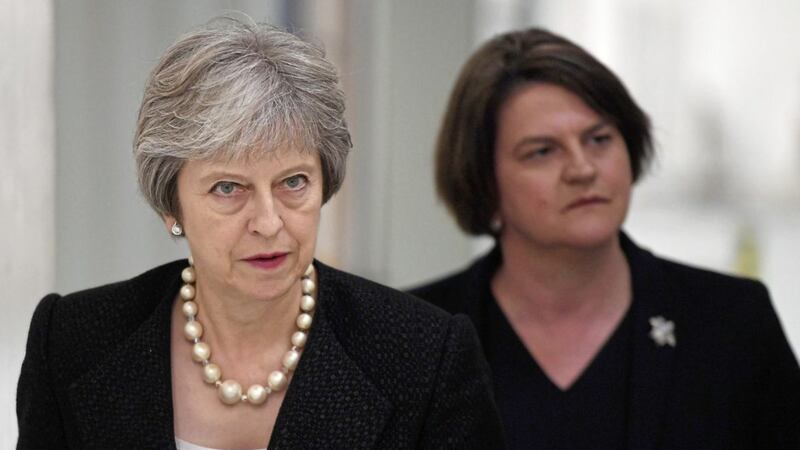The bill the Northern Ireland Office sneaked into Westminster last week has mainly been noted for its section empowering civil servants to take decisions without ministers.
This new stage of indirect rule may be an outrage against democracy in principle and that should not be downplayed.
However, it makes little difference in practice. Since Stormont collapsed, the limiting factor on civil service decisions has been the likelihood of ending up in court. That has not changed, nor has the risk much altered - anything controversial enough to drive individuals or pressure groups to seek a judicial review will continue to do so, albeit with raised financial stakes.
Judges cannot strike down primary legislation but there is plenty for them to chew over in the bill’s operation, even to a provocative extent. Putting Stormont’s current unorthodox circumstances in law with the aim of scaring off legitimate challenge is something the courts may take a dim view of. The entire civil service aspect of the bill just looks like the escalation of a staring contest.
It is the election aspect that is intriguing.
Sitting in plain sight in the bill’s provisions is a timetable for the restoration of Stormont, complete with a set of deadlines.
First, it officially suspends the need to call an election in the absence of an executive until March 26 next year. This is another outrage against democracy in principle that makes no difference in practice - an election has been legally required for over a year but no Stormont party has demanded one because none of them believe it will make any difference while deadlocked issues remain unresolved.
March 26 seems like an odd date when Brexit day is March 29 and there is a consensus the latter must pass before Stormont talks can restart.
In fact, March 26 is the statutory deadline to put a budget before the assembly.
In 2007, the same date was set to restore Stormont under the St Andrews agreement, although it was missed by six weeks.
Brexit day is not a precisely fixed concept for Stormont’s purposes. At one level, Brexit will never be over - we will be negotiating our relationship with Europe for the rest of our lives. At a more immediate level, a Withdrawal Agreement is meant to be through Westminster by the end of this year. This opens a window between New Year and Brexit day for Stormont talks, with a budget deadline towards the end - and about half the Tory-DUP £1 billion left over to sweeten that budgetary motivation.
The exact same schedule last year appeared equally hopeless, until it produced a draft DUP-Sinn Féin deal in five weeks flat that would have put everything back together again had the DUP stuck with it.
The Northern Ireland Office is clearly not counting on success second time around, as the bill provides for a five month extension to the March 26 deadline, taking it to the end of August.
Traditionally, the next deadline would have been expected three months later at the end of June, when the parliamentary year ends, a Stormont mini-budget occurs and the marching season begins. In addition, as arbitrary figures go, five months is pointedly stranger than three.
It looks like the marching season is no longer being humoured as a summer-long waste of talking time and vacuum to be filled with mischief.
The bill states the deadline extension is a one-off power, meaning there is to be no slipping into a classic September to Christmas cycle of Stormont talks - or at least, not without a new bill.
Sinn Féin said last month it wants devolution restored by next April, so republicans appear focused on the five-month window. The question is whether the DUP will once again slam it down on their fingers.
For all the complications and tensions caused by Brexit, the restoration of Stormont still depends on the DUP’s ability to sell February’s deal, or something very like it, to its own base. Once it is prepared to do that, a few months is plenty of time to re-establish the institutions and even attempt some modest reform.
In the eight months since February, Arlene Foster has made no perceptible headway on that task despite its obvious importance.
So what the credibility of the bill’s timetable boils down to is whether the DUP will have a new leader by next April. From the manoeuvrings now evident at the top of the party, the answer to that is quite probably yes.
newton@irishnews.com









